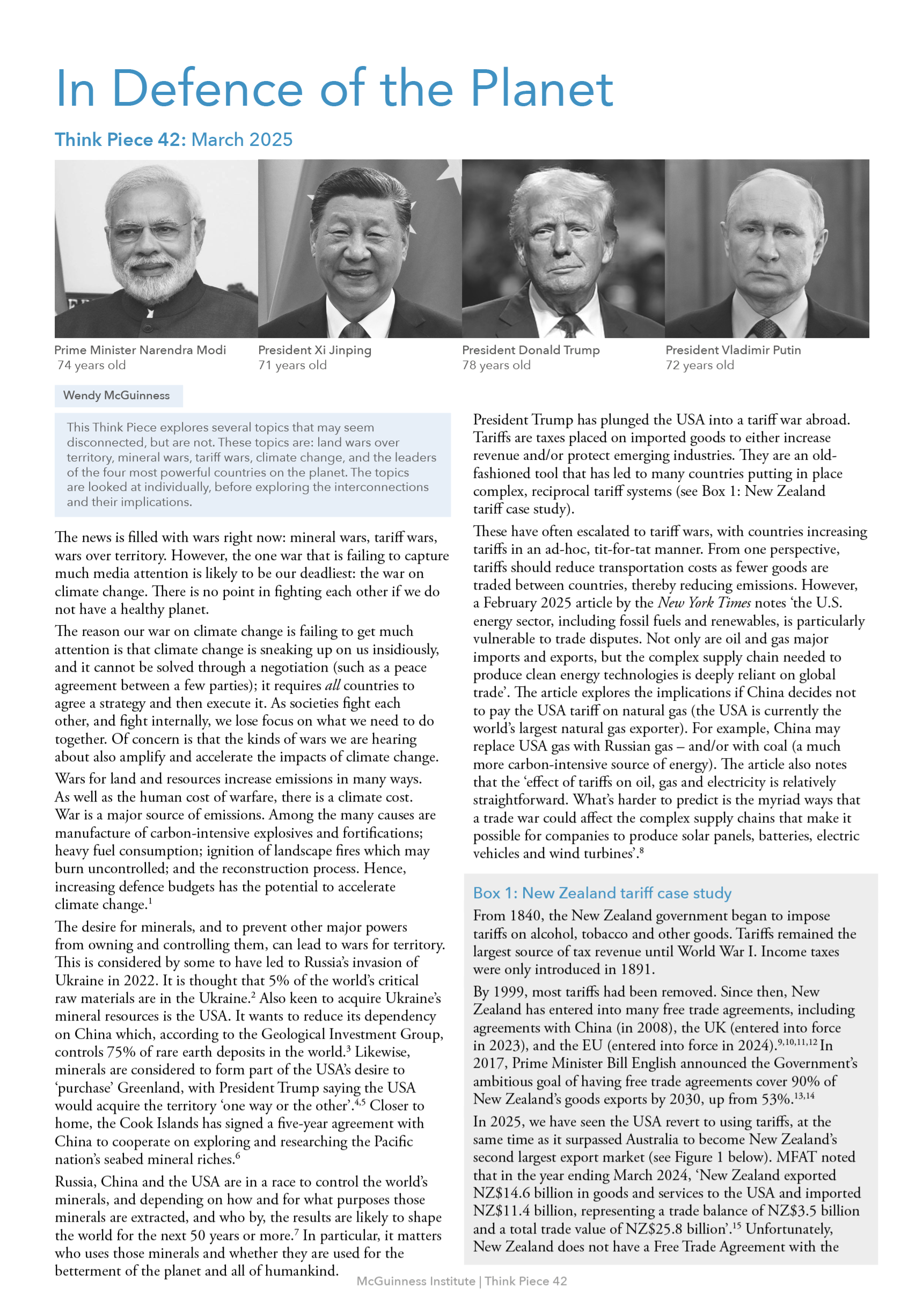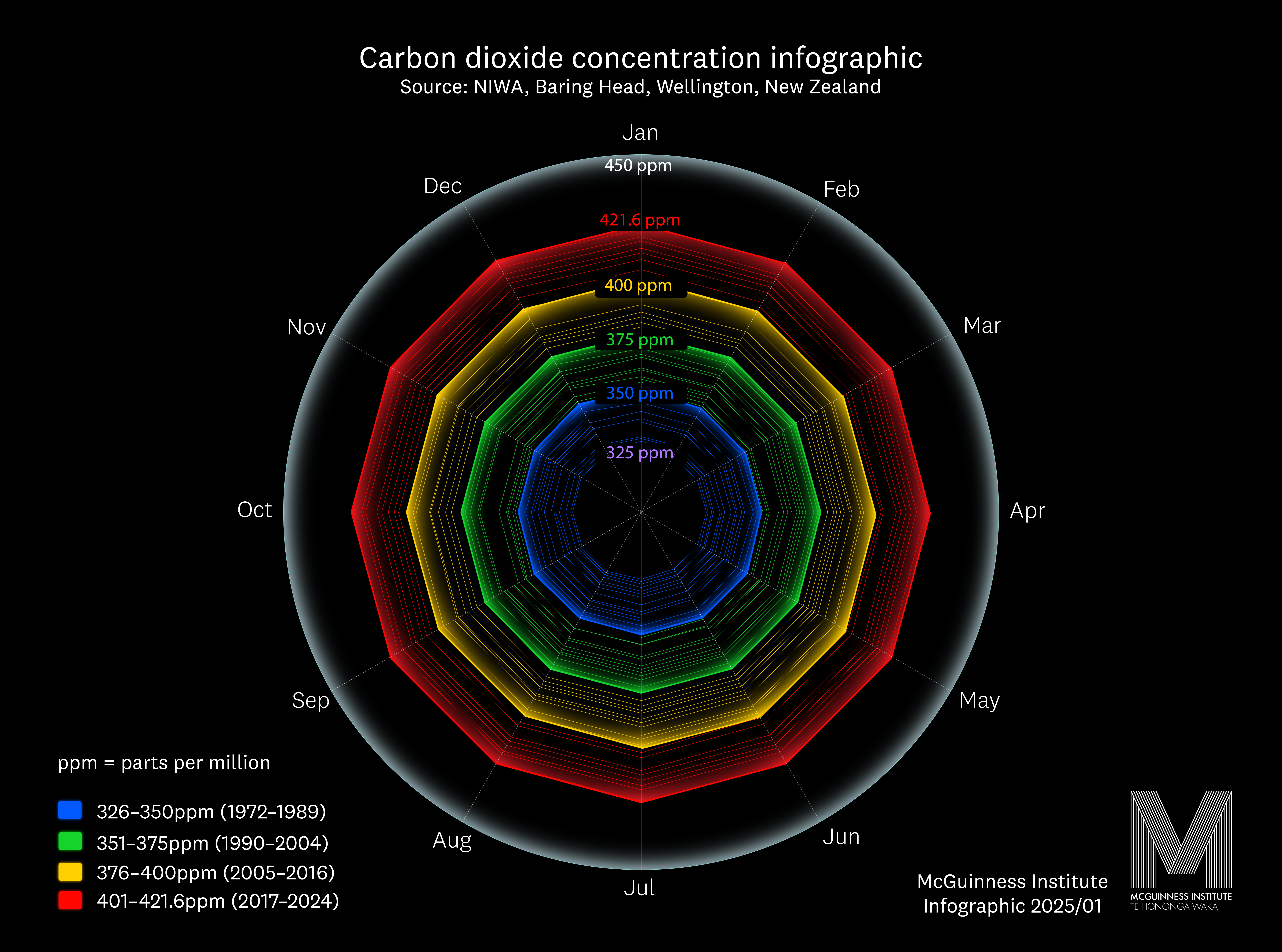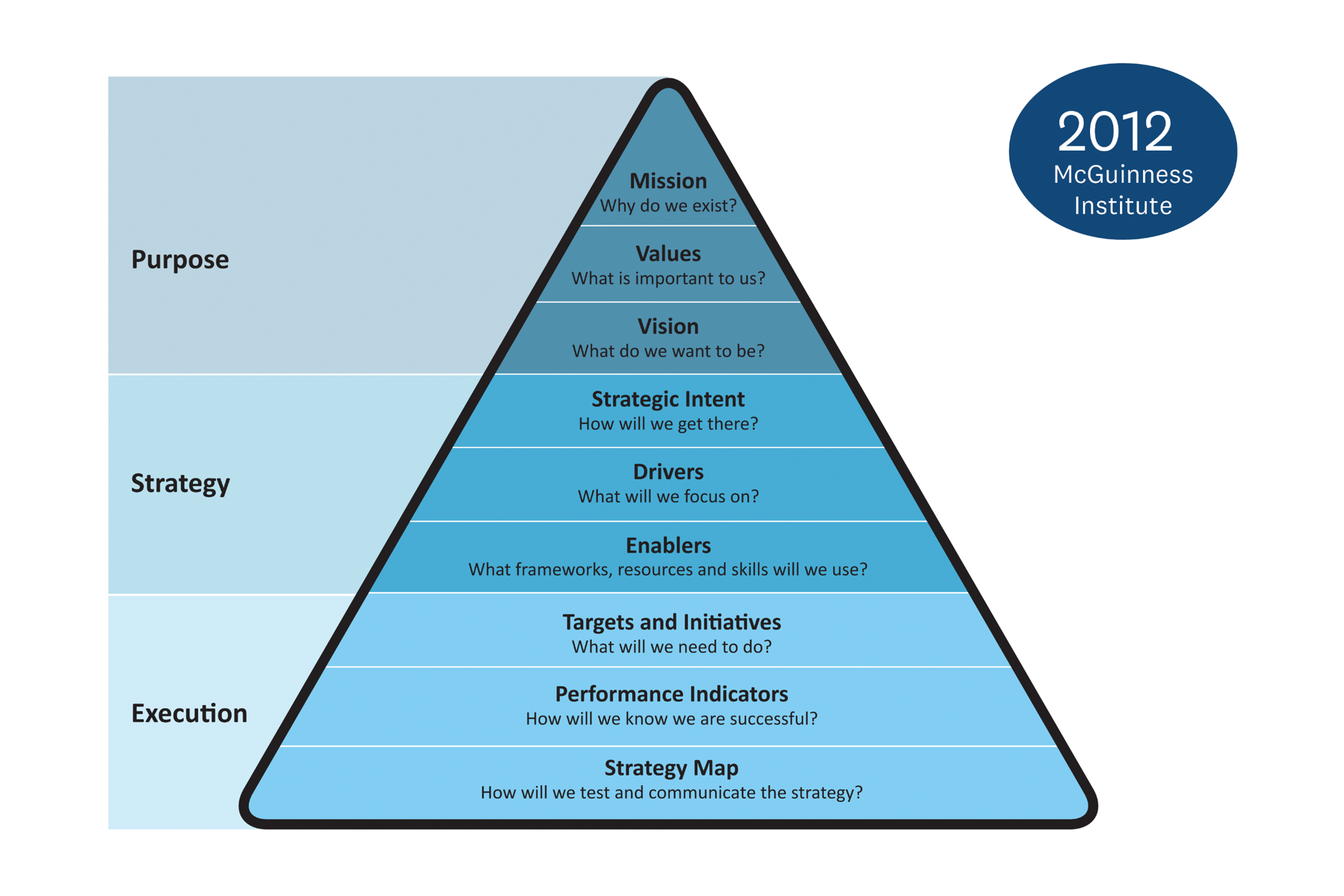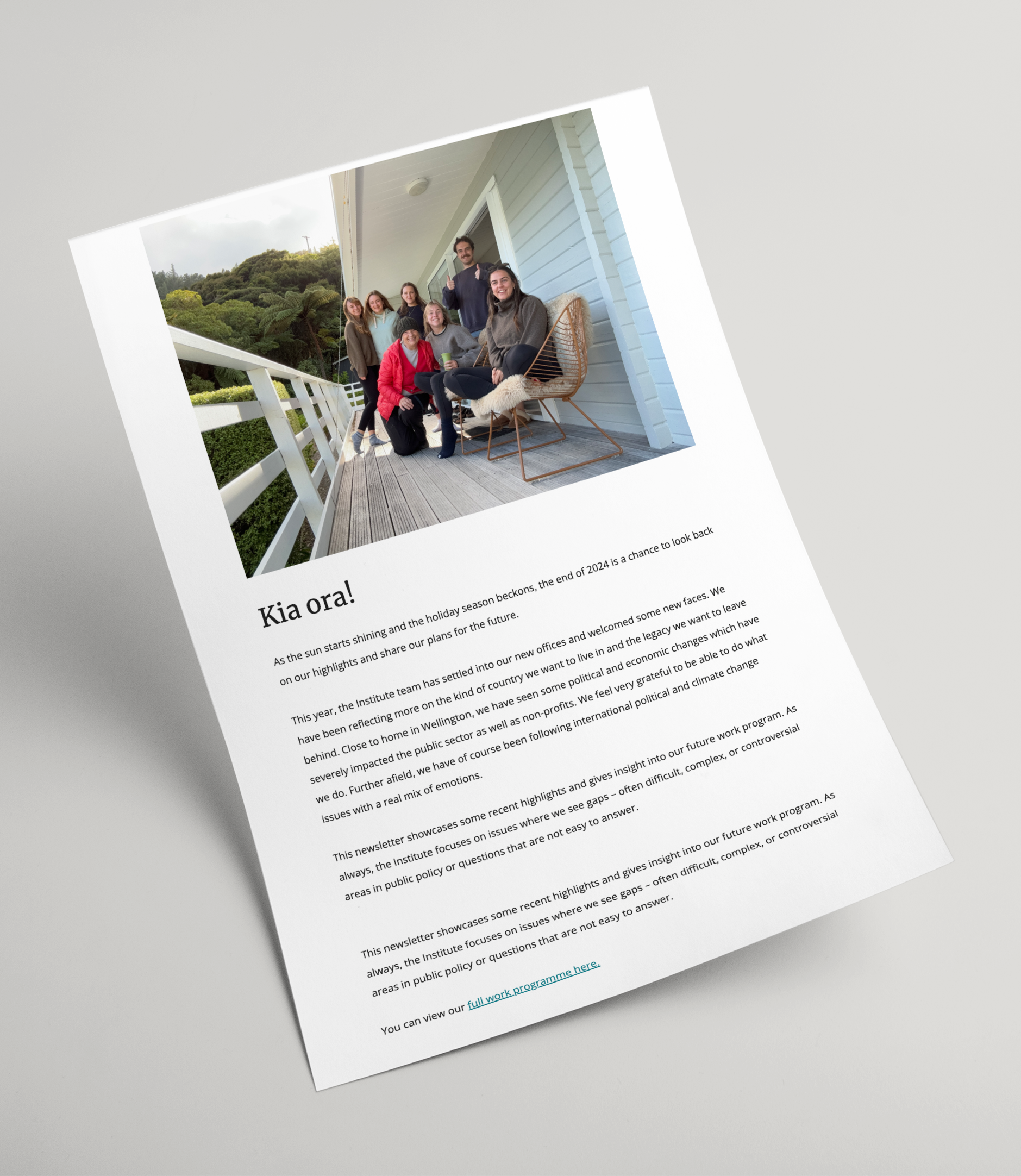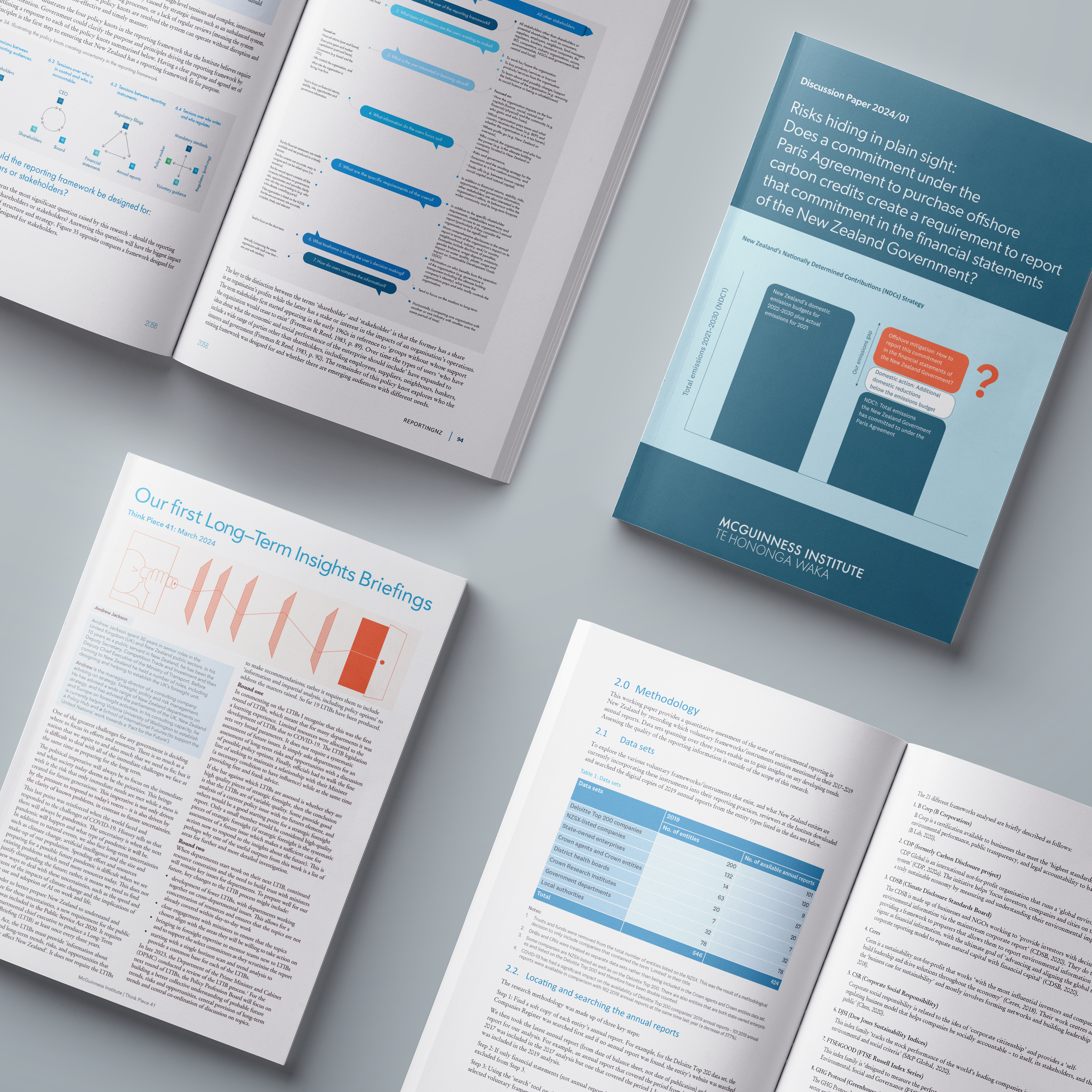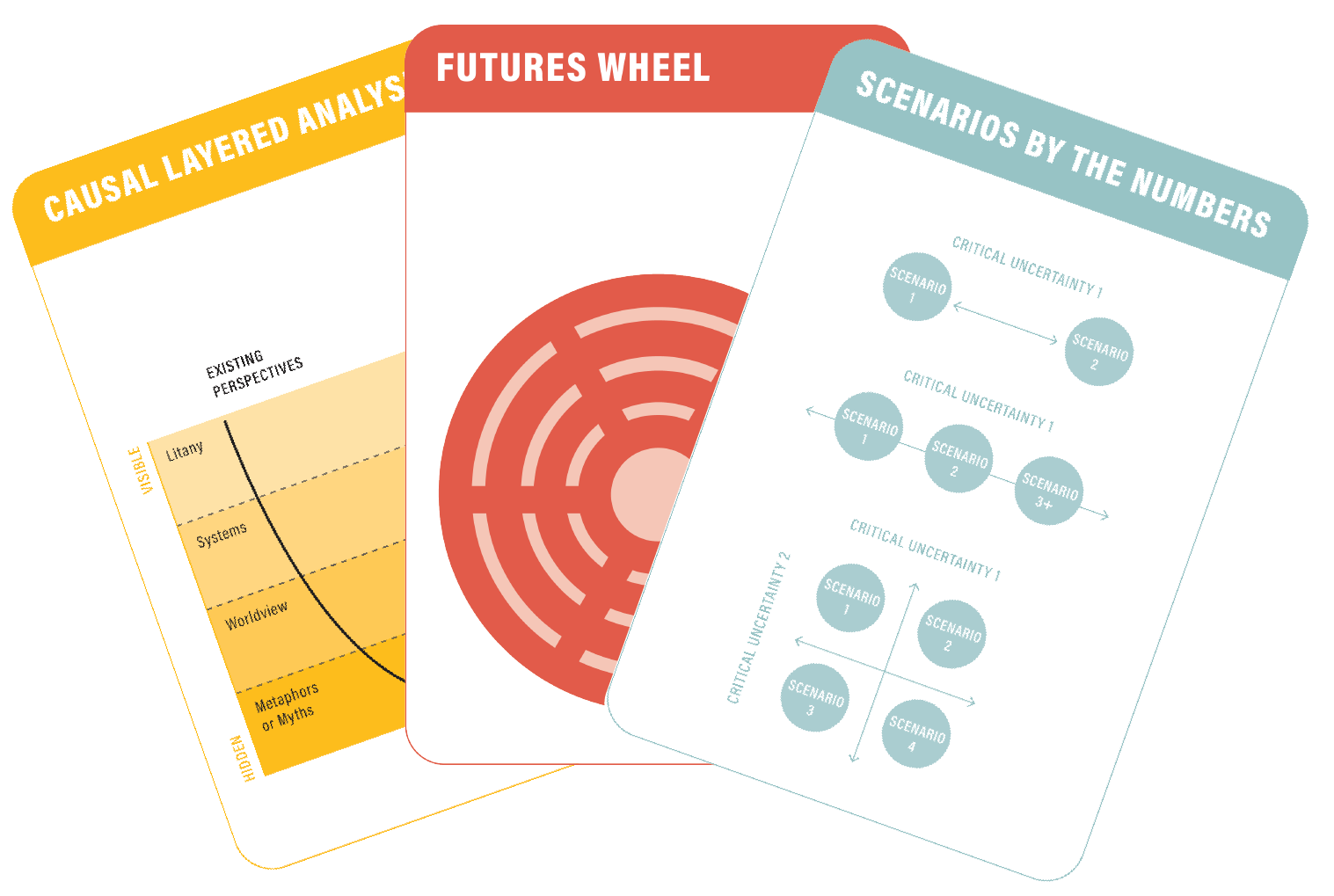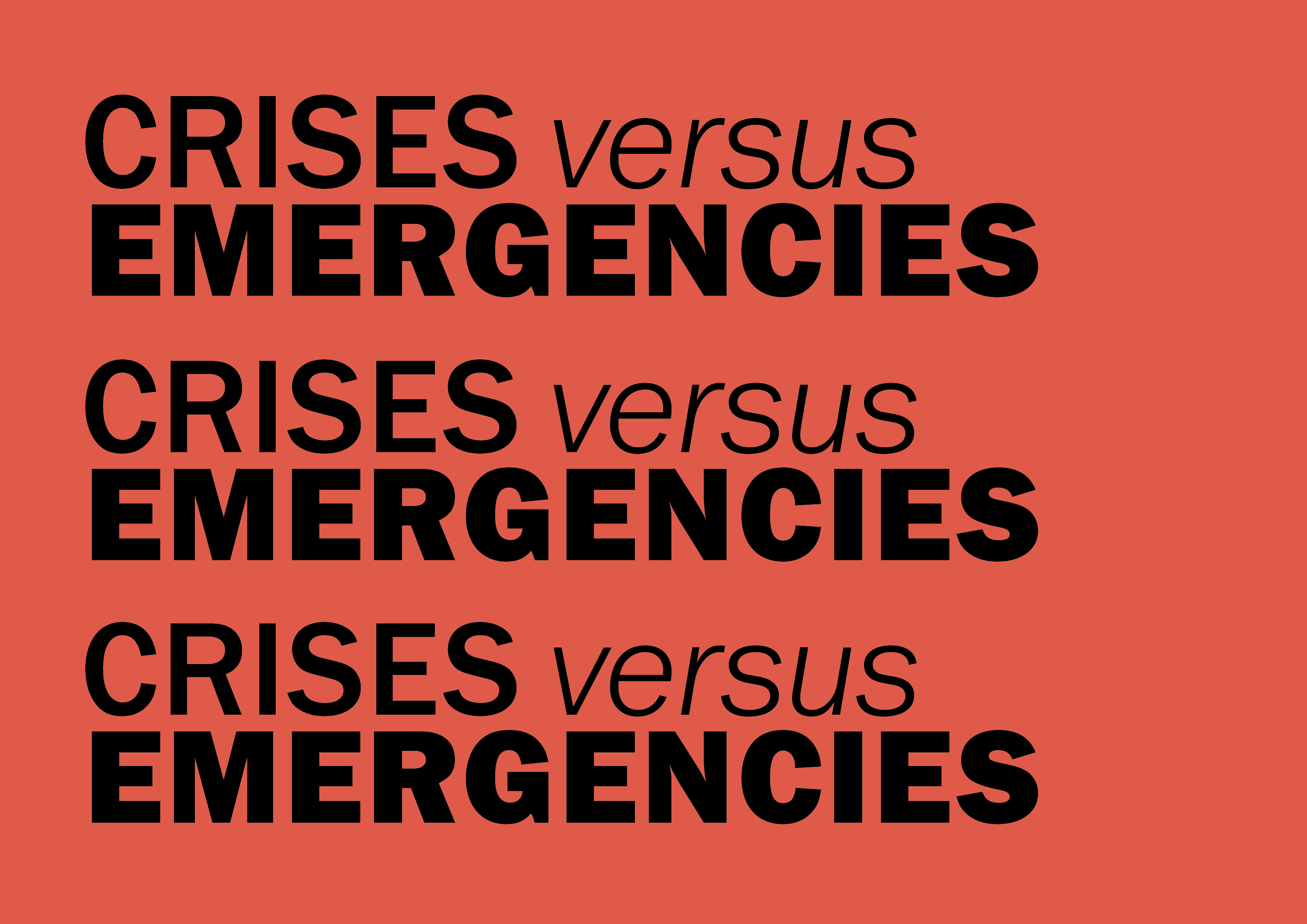We are a non-partisan think tank applying hindsight, insight and foresight to explore major challenges and opportunities facing New Zealand over the long term.
We are committed to positively influencing public policy by empowering New Zealanders to have the uncomfortable, but necessary, conversations that are required to enable New Zealand to realise its potential.
special topic 1
Think Piece 42 – In Defence of the Planet
Think Piece 42 explores several topics that may seem disconnected, but are not. These topics are: land wars over territory, mineral wars, tariff wars, climate change, and the leaders of the four most powerful countries on the planet. The topics are looked at individually, before exploring the interconnections and their implications.
To accompany Think Piece 42, the Institute has updated our graphs of Exports and Imports by Country and Exports and Imports by Commodities to show data up to 2024. See all Exports and Imports graphs.
Think Piece 42 – In Defence of the Planet
March 2025
Download from our Think Pieces page
New Zealand Exports by Country (June 1896–2024)
New Zealand Imports by Country (June 1896–2024)
New Zealand Exports by Commodities (June 1898–2024)
New Zealand Imports by Commodities (June 1898–2024)
latest blogs
Arne Larsen’s ‘life-changing’ placement with the UK Strategic Foresight Team
The Institute’s Arne Larsen had the enormous privilege of spending November 2024-January 2025 in Oxfordshire, on placement with the Strategic Foresight Team at Defence Futures – the think tank of the UK Ministry of Defence (MOD). Arne describes the experience as ‘inspiring’ and ‘life-changing’.
Lay Wee Ng – ‘Without fear or favour’
‘Without fear or favour’ was often Lay Wee’s mantra for her working life. It is a term she remembered her father sharing with her in Malaysia, and it forms part of the judicial oath of New Zealand, the country that became her home. Five years ago, Lay Wee became a patron of the McGuinness Institute. Learn more about Lay Wee’s contribution to the Institute.
The 2040 Wall
As Waitangi Day nears, we at the Institute have been thinking about Te Tiriti o Waitangi/Treaty of Waitangi and its impacts across Aotearoa New Zealand’s past, present and future. At our office in Wellington, we are looking ahead and hoping to create a display collection of artefacts for the 200-year anniversary of the signing of Te Tiriti. We’re tentatively calling this our ‘2040 Wall’.
highlights
special topic 2
Government department strategies (GDSs)
We are delighted to publish the 2023 GDS Index Handbook, which is part of the fourth update to our ongoing GDS Index project.
The Institute’s GDS Index aims to illustrate how New Zealand might strengthen government department strategies (GDSs) to be more effective, responsive, measurable, aligned, comparable, and durable through public consultation, engagement, and ownership.
The GDS Index is important because if government departments make the content of GDSs more transparent, Ministers, officials, and the wider public will be better able to assess their quality and, where appropriate, work together to deliver better outcomes more cost-effectively.
Better visibility and stewardship of GDSs would not only deliver an integrated and aligned approach to government activity but would also reduce the risk of strategies working against each other. Further, it is all too easy to initiate a strategy and then quietly let it be replaced or lost into history without lessons being learned. Hence, it is critically important to monitor GDSs to the end of their useful life.
Also within the series is Working Paper 2024/08 – Methodology and Working Paper 2024/09 – Analysis of Climate Change (see GDS Index page).
The Institute is currently working on the 2024 GDS Index series.
Working Paper 2024/08 – Methodology for the 2023 Government Department Strategies Index as at 31 December 2023
special topic 3
Nationally Determined Contributions (NDCs)
Addendum to Discussion Paper 2024/01
This addendum explains what is new in terms of the recently published (10 October 2024) Financial Statements of the Government of New Zealand for the Year Ended 30 June 2024 (the 2024 Financial Statements) and other recent developments, including a discussion with Minister Watts at the Climate Change and Business conference.
It builds on our June 2024 Discussion Paper 2024/01 – Risks hiding in plain sight: Does a commitment under the Paris Agreement to purchase offshore carbon credits create a requirement to report that commitment in the financial statements of the New Zealand Government?
October 2024
Link to download
Discussion Paper 2024/01 – Risks hiding in plain sight
This is a technical accounting paper that explores whether a commitment by the New Zealand Government to purchase offshore carbon credits to offset emissions should be reported in the financial statements of the New Zealand Government (the overarching accounting problem). It applies current accounting standards to the issue and concludes that a commitment should be recognised as a liability and/or contingent liability in the financial statements of the Government of New Zealand.
June 2024
Updated 23 October 2024, in accordance with the Institute’s Addendum to Discussion Paper 2024/01. This resulted in an additional note being added to Figure 5.1 – The Government’s financial reporting system (see asterisk [*] on p. 35).
Link to download
See the press release.
Video: Minister Watts, 10 September 2024
Minister Watts discussing New Zealand’s decision to purchase offshore carbon credits to meet the NDC commitments under the Paris Agreement.
10 September 2024
Climate Change and Business Conference, Auckland
invitation to comment
Feedback due before 31 March 2025
The Institute would like to welcome feedback and suggestions on our recent work. Your contributions are always valued and greatly appreciated; please don’t hesitate to email us at enquiries@mcguinnessinstitute.org if you have any ideas or thoughts. We are aiming to complete the Foresight Tools cards in April 2025.
Foresight tools cards
We are currently developing a set of foresight tools cards, which explore a number of foresight tools.
See the Foresight tools card set

